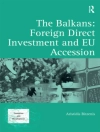Examines Nigeria’s challenges with consolidating democracy and the crisis of governance arising from structural errors of the state and the fundamental contradictions of society in Nigeria’s Fourth Republic.
‘Today we are taking a decisive step on the path of democracy, ‘ the newly sworn-in President Olusegun Obasanjo told Nigerians on 27 May 1999. ‘We will leave no stone unturned to ensure sustenance of democracy, because it is good for us, it is good for Africa, and it is good for the world.’ Nigeria’s Fourth Republic has survived longer than any of the previous three Republics, the most
durable Republic in Nigeria’s more than six decades of independence. At the same time, however, the country has witnessed sustained periods of violence, including violent clashes over the imposition of
Sharia’h laws, insurgency in the Niger Delta, inter-ethnic clashes, and the
Boko Haram insurgency. Despite these tensions of, and anxieties about, democratic viability and stability in Nigeria, has democratic rule come to stay in Africa’s most populous country? Are the overall conditions of Nigerian politics, economy and socio-cultural dynamics now permanently amenable to uninterrupted democratic rule? Have all the social forces which, in the past, pressed Nigeria towards military intervention and autocratic rule resolved themselves in favour of unbroken representative government? If so, what are the factors and forces that produced this compromise and how can Nigeria’s shallow democracy be sustained, deepened and strengthened? This book attempts to address these questions by exploring the various dimensions of Nigeria’s Fourth Republic in a bid to understand the tensions and stresses of democratic rule in a deeply divided major African state. The contributors engage in comparative analysis of the political, economic, social challenges that Nigeria has faced in the more than two decades of the Fourth Republic and the ways in which these were resolved – or left unresolved – in a bid to ensure the survival of democratic rule. This key book that examines both the quality of Nigeria’s democratic state and its international relations, and issues such as human rights and the peace infrastructure, will be invaluable in increasing our understanding of contemporary democratic experiences in the neo-liberal era in Africa.
Tabela de Conteúdo
Foreword: Democratization and Nigeria’s Fourth Republic: Successes and Challenges –
Kayode Fayemi, Governor of Ekiti State of Nigeria
Nigeria’s Fourth Republic: An Introduction –
Wale Adebanwi
PART I: DEMOCRACY AND THE NIGERIAN STATE
1. Reconstructions, Resilience and Relevance: Political Elites and Ethnic Mobilization, 1999-2019 –
Eghosa E. Osaghae
2
. Federalism, Constitutional Reform, and the Elusive Quest for ‘Political Restructuring’ in Nigeria’s Fourth Republic –
Rotimi Suberu
3. Democracy in Nigeria: Crises and Consequences of Military Dictatorship –
Browne Onuoha
PART II: PARTY POLITICS, THE PRESIDENCY AND THE INTERNATIONAL COMMUNITY
4. Democratic Regression, Political Parties and the Negation of the Popularity Principle –
Jibrin Ibrahim
5. A Republic of Dashed Hopes? Party Politics and the Travails of Democracy in Nigeria’s Fourth Republic –
Adigun Agbaje
6. Governing Party Constituency-building in Nigeria’s Fourth Republic –
Sa’eed Husaini
7. Presidential Leadership Styles in the Fourth Republic –
Aliyu Modibbo Umar and V. Adefemi Isumonah
8. Double Standards or Different Lenses? Comparing US Approaches to the Buhari and Abacha Governments –
Matthew T. Page
PART III: THE POLITICAL ECONOMY: OIL AND ECONOMIC REFORMS
9. We live in the Future: Is Nigeria no longer an Oil State? –
Sarah Burns and Olly Owen
10. Economic Reforms and Human Development in Post-Military Nigeria: A Critical Assessment – E
yene Okpanachi
PART IV: ELECTORAL GOVERNANCE, CIVIL-POLITICAL SOCIETY AND CONFLICT
11. The Promise and Problems of Electoral Reforms –
Nkwachukwu Orji
12. From a Human Rights Movement to Civil Society: Changing Contours of Civic Groups –
Idayat Hassan
13. Communal Conflicts, State Responses, and Local Peace Infrastructure –
Gbemisola Animasawun
Afterword: Nigeria’s Long Search for a Viable Political Order –
Larry Diamond
Sobre o autor
Gbemisola Animasawun is an Associate Professor (Reader) at the Center for Peace & Strategic Studies, University of Ilorin, Nigeria. His essays have been published in leading peer-reviewed journals, edited books, policy briefs, working papers and op-eds that have earned him national and international research grants and honour.












